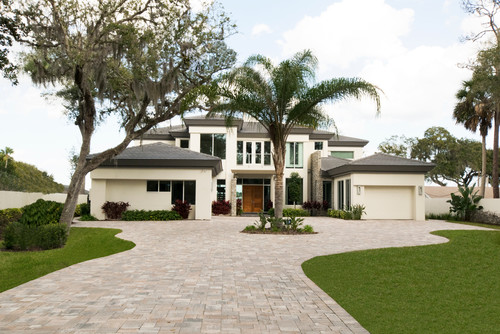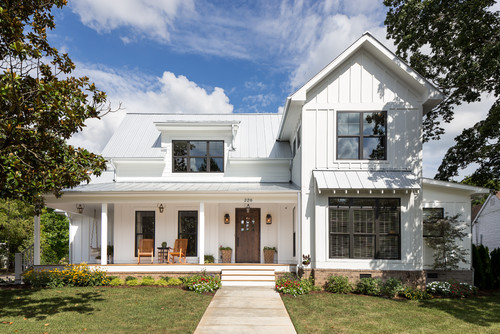There’s a myriad of home trends coming and going these days—from the tiny-house movement to maximalist-style new construction.
And it can feel nearly impossible to keep up as a buyer. How can you determine when a home is a good long-term investment that will be desirable to future buyers, versus a decision you’ll come to regret?
The good news is that the ups and downs of trends don’t really matter when it comes to how well your home retains value. As for what does matter, we asked the experts what figures into a home standing the test of time vs. a home that will likely lose value. Here’s what they had to say.
1. Architectural prowess
Forget about the color of the front door, and hear this instead. Palm Beach, FL, real estate agent Baron Christopher Hanson says one of the top determining factors for value-retaining homes lies in how thoughtfully they were built.
“Traditional, custom-home designs built for their specific lot, landscape, and weather patterns tend to maintain,” says Hanson.
So what homes could see value fade over the years? Think trendy façade styles or cookie-cutter home developments on charmless lots.
“Here in Florida, concrete block and stucco or limestone-built homes retain the most value because concrete and stone fend off pests, sun damage, mold, and extreme weather the best in our tropical climate,” adds Hanson.
2. Niche design
The polar opposite of cookie-cutter houses are homes built in a high-end niche style. These can range from Colonial to Victorian. In short, classic home designs that are highly popular and admired for quality and top-of-the-class workmanship are also more likely to retain their value over time.
“Let’s take a look at the American Craftsman, for example,” says Donald Shurts, a Realtor® with Keller Williams Advisors Realty. “You can compare these types of homes to the Rolls-Royce of the modern architecture world, as they’ve been among the top architectural styles for homebuyers since the 1990s.”
3. Single-story layout
What’s on the inside of a home matters when it comes to a property retaining its value. The type of layout, as well as how many floors your home has, are all determining factors in how well it will retain value.
“One thing people aren’t aware of is that a single-story house will often sell for more,” says Eyal Pasternak, real estate investor and founder of Liberty House Buying Group.
The reason? Single-story homes often appeal to the most number of buyers. That pool will include those who might want to avoid homes with stairs due to age or accessibility, or owners looking for wide-open floor plans with lots of usable space.
“In the eyes of appraisers and buyers, the more usable square footage, the more value,” says Kerry Sherin of home valuation company Ownerly.
4. Homeowners association membership
Beyond the home itself, there’s a lot to be said about the location that goes into determining if a home will retain its value.
First on this list of location-oriented factors? The desirability of your neighborhood and, more specifically, if it’s part of a homeowners association .
“The presence of an HOA also makes the prices higher since these tend to be well-maintained neighborhoods where everyone is trying to get a house,” says Pasternak.
And while many homeowners chafe against HOA rules and regulations, the associations do tend to enforce a certain curb appeal. As a result, these neighborhoods can be aesthetically more pleasing than neighborhoods where there is no regulation.
5. Favorable urban development
Another location-based factor that determines whether your home will retain its value is how favorably (or not) your closest urban center is developing.
“Location matters in terms of commute times, crime rates, school quality, and other local amenities like parks and shopping, in approximately that order,” says Martin Orefice, CEO of Rent To Own Labs.
So when looking at a home, look for an area that’s evolving and showing improvements. Consider factors such as new employers, transit lines, parks, and schools. If all of these are in good shape or on the rise, look for a potential boost to your long-term property value.
The bottom line
Buying a home is a highly personal journey. And while you might not solely want to purchase a home with an eye toward selling it in the future, it can’t hurt to see if a home with a good return on investment can align with your dream home checklist.










